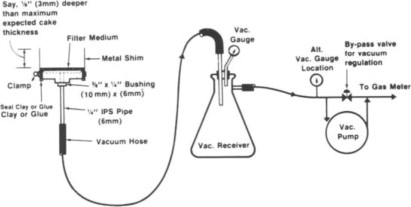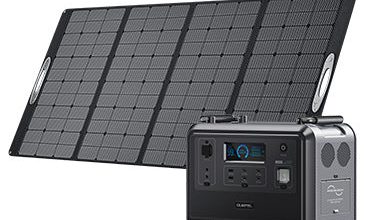A COMPREHENSIVE EXAMINATION OF FILTRATION SYSTEMS: EFFICIENCY, BENEFITS AND APPLICATIONS

Filtration is the process of separating solid particulate matter from liquid or gaseous state of matter by using a porous filter medium. With the ability to remove / separate microscopic contaminants, pathogens and other particulate matter from fluids, filtration processes have profound implications in the pharmaceutical and associated industries. Biomanufacturing is one such industry where filtration forms an integral part of the process; it is used for purification and sterilization of biologics and other ancillary materials required for manufacturing of biologics. Further, the extraction of biomolecules from culture media and the downstream separation procedures (such as protein purification, viral clearance, API filtration) also relies on filtration technologies.
The main determinant of particulates that get separated is the pore size of the filter membranes. Sterilization of parenteral / injectable formulations usually requires sterilizing-grade filter membranes with pore size of less than 0.2 µ. This is primarily because the biological molecules are quite sensitive to heat, electrical and other chemical treatments and gets destroyed when using conventional sterilization / purification techniques. As a result, industry players have shifted their focus on developing biopharmaceutical filters and techniques that remove cellular debris, metabolites and microbes without employing toxic chemicals, extreme temperature, or other forms of energy (such as gamma radiation) to kill micro-organisms. In addition, incorporation of prefiltration into this process prolongs the life of sterilizing filters and lowers the overall cost of filtration. The global filtration market is anticipated to grow at a CAGR of around 9.0%, till 2035, according to Roots Analysis. Driven by the fact that biologics are sensitive to heat and other chemically driven purification treatments, the demand for filtration systems is increasing and market is anticipated to witness steady growth in the coming decade.
FILTRATION SYSTEMS
Filtration system is an essential component of the biopharmaceutical manufacturing process, which is designed to purify biological products, such as vaccines, therapeutic proteins and monoclonal antibodies by removing unwanted particles, such as colloidal materials and microorganisms from cells, proteins, small molecules and nucleic acids, and obtain contaminant free products. Some of the commonly used biopharmaceutical filtration techniques include (in alphabetical order) microfiltration, nanofiltration and ultrafiltration.
The choice of filtration technique depends on the product, impurities to be purified, and the manufacturing process employed. The key benefit of these techniques are that they do not denature or damage biomolecules. Therefore, filtration systems play an important role in ensuring the quality and safety of biological products.
TYPES OF FILTRATION SYSTEMS
The biopharmaceutical industry uses different filtration systems depending on the type of formulation being purified.
Filtration systems are used widely in the biopharmaceutical industry for multiple applications. There are several types of filters used in bio manufacturing, including:
- Depth Filters: These filters are made of a thick, porous material such as cellulose or diatomaceous earth. They work by trapping larger particles within the depth of the filter, allowing the fluid to pass through.
- Tangential Flow Filter: Tangential flow filtration or cross flow filtration uses a membrane to separate molecules based on their size and concentration. Mechanistically, this method works by passing the fluid tangentially along the surface of the filtration membrane to filter out the cellular debris, viruses and bacteria from biomolecules.
- Virus Filters: The virus filtration system typically consists of a filter that has pore sizes in the range of 15-100 nanometers. The most commonly used filters are made from polyethersulfone (PES) or polyvinylidene difluoride (PVDF) membranes. These filters are able to capture viruses by size exclusion, electrostatic interactions, or adsorption.
- Membrane Filters: These filters are made of a thin, porous membrane that selectively removes impurities based on their size, shape, and charge. Membrane filters are typically used for sterilization and removal of smaller impurities such as bacteria and viruses.
- Single -use Filters: Single-use filters, also known as disposable filters, are novel filtration devices that are designed to be used once and then discarded, which offers several advantages over traditional stainless-steel filters, such as cost effectiveness, low cross-contamination risk, reduced downtime and flexibility
- Others: In bioprocessing, prefilters are often used in combination with several other filters to remove both large and small particles from the liquid stream. In addition, chromatography filters use a variety of techniques to selectively remove impurities based on their physical and chemical properties.
ADVANTAGES OF BIOPHARMACEUTICAL FILTRATION SYSTEMS
Biopharmaceutical filters offer various advantages over other filters as they are available in different diameters and pore sizes. Moreover, they are least absorptive and deliver high throughput rate. Few of the advantages are listed below:
Product Purity: They effectively remove impurities such as particles, microorganisms, and contaminants, ensuring the final product meets strict quality standards.
Product Safety: These systems help eliminate the risk of contamination, ensuring the safety of biopharmaceutical products for patients.
Yield Improvement: Filtration can increase product yield by removing unwanted components, resulting in higher product concentrations.
Scalability: Biopharmaceutical filtration systems are adaptable and can be scaled up or down to accommodate different production volumes.
Cost-Efficiency: Proper filtration reduces the need for downstream processing steps, ultimately saving costs.
Sterilization: Some filtration methods, like membrane filtration, provide sterilization, which is crucial for aseptic processing.
Product Consistency: Filtration contributes to batch-to-batch consistency, ensuring product efficacy and safety.
CHALLENGES ASSOCIATED WITH BIOPHARMACEUTICAL FILTRATION SYSTEMS
The key challenge of biopharmaceutical filtration is that cell culture derived biomolecules possess inherent impurities, such as host cell protein, DNA and other feedstocks, thereby producing variation in product composition. In order to achieve highly pure biologics, biopharmaceutical industry needs precise and robust filtration technologies and processes. Some of the challenges associated with biopharmaceutical filtration systems are mentioned below:
- Air Entrapment: Potential air entrapment during filter sterilization by steam.
- Loss of product: The filtration process can result in the loss of some of the product, particularly when using smaller pore-sized filters. This may result in the increase in production cost.
- Clogging of filters: Filters can become clogged over time, reducing their efficiency and requiring replacement. This can add to the cost of production and increase downtime.
- Variability: Variations in the quality of the filters used, and the filtration process itself, can lead to product variability, which can affect product quality and consistency.
APPLICATIONS OF BIOPHARMACEUTICAL FILTRATION SYSTEMS
Biopharmaceutical filtration is critical process used in manufacturing of biological products, such as antibodies, vaccines, virus removal, blood plasma fractionation, cell culture clarification, cell harvesting, recombinant proteins, DNA and RNA. It uses sterile filtration process to protect heat – sensitive biomolecules from denaturing or damaging.
Biopharmaceutical applications are essential in ensuring the safety, quality, and efficacy of the final product. Some common applications are:
- Sterilization: Biopharmaceutical filtration is used to remove bacteria, viruses, and other microorganisms from the final product to ensure that it is safe for human use.
- Clarification: Biopharmaceutical filtration can be used to clarify the product by removing impurities such as aggregates, cell debris and host cell proteins.
- Concentration: Biopharmaceutical filtration is also used to concentrate the product by removing excess water and other diluents.
- Fractionation: Biopharmaceutical filtration can be used to separate different components of the product, such as antibodies or proteins, from other components.
- Virus removal: Biopharmaceutical filtration is used to remove viruses that may be present in the product, particularly during the manufacturing of biological products derived from mammalian cells.
CONCLUDING REMARKS
The biopharmaceutical filtration market has been growing rapidly in recent years, driven by the increasing demand for biologics. In the highly competitive biomanufacturing industry, a wide variety of filtration methods are available for product / process development. The choice of optimal filter solely depends on the application and size of contaminant to be filtered. Further, innovators are developing filtration technologies to automate processes that have the ability to provide both separation and purification, with an aim to enhance efficiency. However, stakeholders involved in the manufacturing of filtration systems face various challenges due to the high cell densities and initiatives of biopharmaceutical manufacturers to employ single-use technologies and sensor incorporated filtration systems at an increasingly larger scale. To mitigate the existing concerns, players are expanding their capacity, employing high-performance filters (based on improved membrane materials, membrane structures and filter designs). Moreover, big players in the pharmaceutical industry are moving away from immobile and rigid systems, with bulky stainless-steel vessels and fixed attachments, towards more flexible, automated, robust and scalable disposable systems. Owing to this, in the coming years, the biopharmaceutical filtration market is expected to continue to grow. This increase is anticipated to be driven by the increasing demand for biologics and biosimilars, personalized medicines, as well as ongoing technological advancements to improve efficiency, reduce costs, and ensure regulatory compliance.
Roots Analysis is a global leader in the pharma / biotech market research. Having worked with over 750 clients worldwide, including Fortune 500 companies, start-ups, academia, venture capitalists and strategic investors for more than a decade, we offer a highly analytical / data-driven perspective to a network of over 450,000 senior industry stakeholders looking for credible market insights. All reports provided by us are structured in a way that enables the reader to develop a thorough perspective on the given subject. Apart from writing reports on identified areas, we provide bespoke research / consulting services dedicated to serve our clients in the best possible way.





